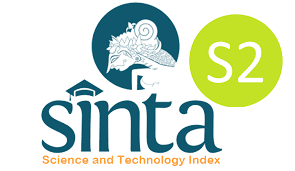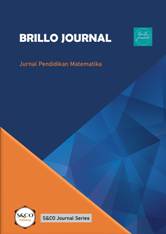Predictive Analysis: Academic Resilience as a Determinant of Mathematics Achievement among Senior Secondary School Students in Nigeria
DOI:
https://doi.org/10.56773/bj.v3i2.48Keywords:
Academic achievement, Academic resilience, Gender and mathematicsAbstract
Mathematics is considered a key foundation for scientific knowledge required for the development of any nation. Poor mathematics achievement has been reported nationally. This paper was designed to investigate academic resilience as a determinant of mathematics achievement among senior secondary school students in Owerri municipal council of Imo State. A correlational design was used for the study. The study comprised a population of 32,068 students in public secondary schools in Owerri Municipal Council of Imo State. A sample of 180 SSII students was drawn from the population, using simple random sampling. Two instruments were used for data collection in this study. They are: the Academic Resilience Scale (ARS) for secondary school students was developed by Martin and Marsh with a Cronbach reliability coefficient of 0.74, and the Mathematics Achievement Proforma (MAP). Descriptive and inferential statistics including simple linear regressions were used for data analysis. The findings showed that academic resilience positively and significantly predicted mathematics achievement irrespective of gender. It was recommended to prepare and encourage students to be resilient, with the spirit of resilience inculcated at a young age, as this helps them in life and positively predicts mathematics achievement.
References
Abolmaali, K., & Mahmudi, R. (2013). The prediction of academic achievement based on resilience and perception of the classroom environment. Open Science Journal of Education, 1(1), 7–12.
Chatman, A. E. (2011). Institutional factors that affect the mathematical achievement of African American females (Publication No. 1205) [Doctoral dissertation, University of Alabama]. University of Alabama Libraries. https://ir.ua.edu/handle/123456789/1205
Fallon, C. M. (2010). School factors that promote academic resilience in urban Latino high school students [(Publication No. 122) [Doctoral dissertation, Loyola University Chicago]. ProQuest Dissertations Publishing]. http://ecommons.luc.edu/luc_diss/122
Federal Republic of Nigeria. (2012). National Policy on Education (4th ed.). NERCDC Press.
Gizir, C. A., & Aydin, G. (2009). Protective Factors Contributing to the Academic Resilience of Students Living in Poverty in Turkey. Professional School Counseling, 13(1), 2156759X0901300. https://doi.org/10.1177/2156759X0901300103
Hanushek, E. A., Peterson, P. E., & Woessmann, L. (2010). U.S. Math Performance in Global Perspective: How Well Does Each State Do at Producing High-Achieving Students? Program on Education Policy and Governance, Harvard University.
Harrington, C. (2015). Student success in college: Doing what works! Cengage Learning.
He, Z. (2014). Examining the academic resilience in mathematics performance for the underprivileged ninth graders using the national data from the high school longitudinal study (HSLS: 09). [Unpublished doctoral dissertation]. Texas Tech University. https://ttu-ir.tdl.org/server/api/core/bitstreams/d76d0d87-b000-464e-8acd-40c064950a74/content
Lee, D. D. (2009). Impact of resilience on the academic achievement of at-risk students in the upward bound program in Georgia. (Publication No. 202) [Doctoral dissertation, Georgia Southern University]. Digital Commons@Georgia Southern.
Martin, A. J., & Marsh, H. W. (2006). Academic resilience and its psychological and educational correlates: A construct validity approach. Psychology in the Schools, 43(3), 267–281. https://doi.org/10.1002/pits.20149
Masten, A. S. (2014). Global Perspectives on Resilience in Children and Youth. Child Development, 85(1), 6–20. https://doi.org/10.1111/cdev.12205
Odili, G. A. (2006). Mathematics in Nigerian secondary schools: A teaching perspective. Anachuna Educational books.
Ogbeche, A. T., Jude, Ezugwu, I., Chidi, Madu, B., Eze, F. B., & Asongo, S. T. (2021). Analysis of Psychometric Qualities of National Examinations Council (NECO) Mathematics Essay Test Using Generalized Partial Credit Model. The International Journal of Humanities & Social Studies, 9(12), 31–40. https://doi.org/10.24940/theijhss/2021/v9/i12/HS2112-014
Olowojaiye, F. B. (2012). Mathematical knowledge as a function of achievement in Vocational subjects in Colleges of Education. Maden Conference Proceeding on Teaching Effectiveness in the 21st, 23–29.
Ricketts, S. N. (2015). Academic Resilience in Mathematics [[Unpublished doctoral dissertation]. Emory University]. https://etd.library.emory.edu/concern/etds/vx021f95d?locale=zh
Riley, J. R., & Masten, A. S. (2005). Resilience in context. In R. D. Peters, B. Leadbeater, & R. McMahon (Eds.), Resilience in children, families, and communities: Linking context to practice and policy (pp. 13–25). Kluwer Academic/Plenum.
Rojas, L. F. (2015). Factors affecting academic resilience in middle school students: A case study. Gist: Education and Learning Research Journal, 11, 63–78.
Stangor, C. (2011). Research methods for the behavioural sciences (4th ed.). Cengage Learning.
Tella, A. (2007). The Impact of Motivation on Student’s Academic Achievement and Learning Outcomes in Mathematics among Secondary School Students in Nigeria. EURASIA Journal of Mathematics, Science and Technology Education, 3(2), 149–156. https://doi.org/10.12973/ejmste/75390
Unodiaku, S. S. (2012). Development and Validation of Mathematics Readiness Test for senior secondary school students. African Journal of Science Technology and Mathematics Education (AJSTME), 2(1), 57–69.
West African Examination Council. (2016). Chief examiner’s report. WAEC.
Downloads
Published
How to Cite
Issue
Section
License
Copyright (c) 2024 Darlington Chibueze Duru, Chinedu Victor Obasi, Chinyere Oguoma

This work is licensed under a Creative Commons Attribution 4.0 International License.
The authors agree that this article remains permanently open access under the terms of the Creative Commons Attribution 4.0 International License





